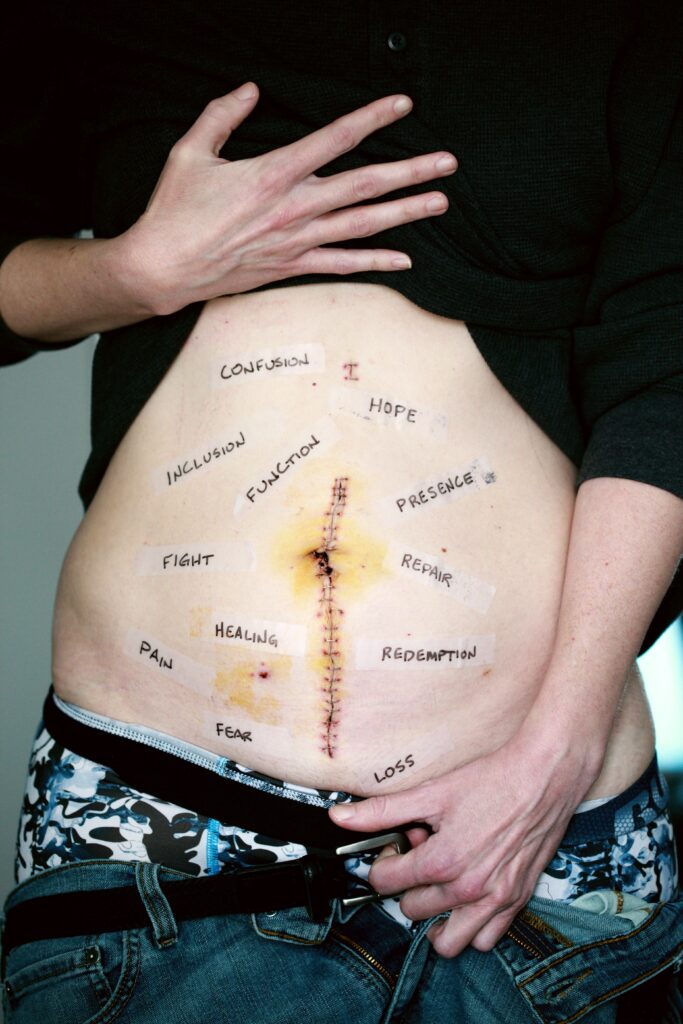What is Chronic Disease? Chronic disease is any condition that last one year or longer and requires ongoing medical attention and/or limits your normal daily living. Having a chronic disease creates a really tough time in your life and requires a lot of attention, energy, and strength (physically and emotionally).
Having a chronic disease can also seep into other areas of your life like your relationship with your partner, time with friends and family, and even your work life. The added stress can even make your chronic disease symptoms worse and take extra energy that you might not have.
What is An Example of Chronic Disease?
- Heart Disease
- High Blood Pressure
- High Cholesterol
- Stroke
- Cancer
- Diabetes
- Fibromyalgia
- Asthma
- Mental Illness (Schizophrenia and Bipolar Depression)
- Rheumatoid Arthritis
- Hypothyroidism
- Lupus
- Ulcerative Colitis
- Crohn’s Disease
- Renal Disease
- Cardiac Failure
- Cardiomyopathy
- Haemophilia
- Anxiety
- Depression
- Multiple Sclerosis
- Endometriosis
- Polycystic Ovary Syndrome (PCOS)
- Interstitial Cystitis
- Epilepsy
- Parkinson’s Disease
- Glaucoma
- COPD (chronic obstructive pulmonary disease)
- Addison’s disease
- Bronchiectasis
- Cardiac dysrhythmias
- Eczema
- Psoriasis
- Lyme’s Disease
- Chronic Pain
This is not a complete and all-encompassing list of Chronic Diseases. You or someone you know and love may have one or several of these conditions. It can get into and affect every aspect of your life. And, you know that most of these diseases are not always obvious from the outside. It’s something that is carried within and might even control how you make life decisions. Each chronic condition affects your body differently, but functional medicine looks for common underlying causes like inflammation, diet, and stress. Learn how chronic digestive diseases can disrupt your life and what you can do about it.
Sometimes even simple decisions like whether or not to go out to dinner with friends. This is because your chronic disease is a constant thought and concern that looms in your mind. There might even be times when you are so sick or have a severe flare-up of symptoms that are normally controlled but can send you to the hospital. And, if you’ve been hospitalized, you know it’s not fun and you don’t want to do it again any time soon.
Inflammation and Chronic Disease
The first thing to know about inflammation is that not all inflammation is bad. We need inflammation with an acute injury like cutting your finger. That inflammation is needed to clean the injured area, clot the blood and form a scab. Those are all good things and are short-term!

The problem happens when inflammation doesn’t cool down after trauma or an injury. If the inflammation continues to respond to a non-life-threatening situation in the body it becomes a chronic condition. Which needs to be treated before it causes tissue damage.
More research is pointing toward all know conditions and symptoms having an underlying inflammatory problem. Some of the most common things that we do cause inflammation to constantly be present. What we eat and drink are very inflammatory and can contribute to chronic inflammation in our body.
Common inflammatory foods include sugar, processed meats, alcohol, excess caffeine, hydrogenated oils, MSG, and fried foods. Along with artificial sweeteners, colors, and preservatives.
Does the Gut Play a Roll in Chronic Diseases?
In a nutshell, the answer is yes! The gut and digestive systems are very complex and even have their own nervous system known as the enteric nervous system (AKA the second brain). Let’s take a simplified look at why the gut is so important and how it can affect the rest of the body.
Let’s picture the digestive tract (the gut) as a long tube where at different places along the way select food is digested and absorbed. Outside of the tube is the bloodstream. Between the digestive tract and bloodstream are a very thin layer of mucus and a one-cell thick membrane.

Picture the gut (or tube) as a chain-linked fence that is filled with balloons. Once you can imagine this, use your imagination to pick up a handful of sand that is on the ground and toss it at the balloon-filled fence. What happened? Most of the sand you threw hit the balloons and bounced off and fell back to the ground, but very small pieces of sand made it through to the other side of the fence as a small cloud of dust.
Next, imagine that several of the balloons have popped and are missing. Take that same handful of sand and throw it at the fence. What happened this time? A lot of sand of all different shapes and sizes, and maybe even a few small pebbles, got through to the other side.
So what does that have to do with your gut and chronic disease?
Well, a whole heck of a lot!
When the gut barriers are healthy only small particles like amino acids, simple sugars, and fatty acids can cross into the bloodstream. Where they will be used by all different tissues for nutrition, growth, and repair. If the gut is unhealthy and larger gaps are present, then larger undigested pieces of food can cross into the body. When these larger pieces of food that are not completely broken down enter the body a chain reaction happens and inflammation occurs. If this happens day-in and day-out every time you eat then a cycle of chronic inflammation is running unchecked through your body.
Stress & Chronic Disease
The stress of dealing with a chronic disease can be overwhelming and even debilitating. The burden of disease that is always present, especially if no one else can see what you are feeling, is very stressful and can actually make you feel worse. When you spend more time stressing and worrying about your condition and how you will feel on any given day can consume your thoughts. It can become so overwhelming that leaving the house and going out with friends or family seems impossible.
You are not alone! The stress of having a chronic disease is not only felt by you but is also felt by the people who love and support you. Sometimes finding a support system outside of your family and friends is beneficial. A support group or therapist is an excellent idea when you want to talk about how you feel without someone who loves you trying to make it better for you.
Lifestyle and Managing Chronic Disease

One of the best ways to manage living with a chronic disease is to make changes to your daily habits. Start small by adding in one or two small but healthy lifestyle changes that you can do daily. You might want to start with taking five to ten minutes per day to journal. Another small change can be adding time to meditate or pray. Prayer and meditation can help to calm the mind, relieve stress, and promotes physical and emotional well-being.
Want to do more? Talk with a holistic functional medicine doctor who can work with you and your specific health needs. Many holistic functional medicine doctors create lifestyle recommendations that include changes in diet, sleep habits, exercise, acupuncture, chiropractic care, nutritional supplements, and relaxation techniques.
Nutrition
When it comes to inflammation, digestive issues, and chronic disease there are many supplements and lifestyle factors that can address these conditions. But, it becomes difficult to figure out what works best for you. Most of the time it’s through trial and error. But that can become frustrating quickly!
It’s best to talk with someone who has advanced training in holistic medicine and nutrition and who can be a part of your wellness journey. You shouldn’t have to go through this alone, suffering and trying to feel better but not knowing where to turn.
It’s very important to talk with your doctor before starting a new exercise program or making significant lifestyle and dietary changes. If you do not have a doctor to talk through things with then it might be time to consider functional medicine.
So What’s Next?
This is the first article of a 4-part series on Chronic Diseases. In our follow-up articles, we explore specific chronic conditions like Chronic Digestive Diseases, Autoimmune Disorders, and Diabetes Type 2. We will talk about how you can feel better and even thrive with the help of holistic and functional medicine. In our next article, we will be talking about chronic digestive diseases including Ulcerative Colitis and Crohn’s Disease.
Address Your Chronic Disease With Functional Medicine in Orland Park, IL?
Living with a chronic disease is overwhelming enough. Then trying to figure out on your own what to do to feel better can feel next to impossible. As a functional medicine doctor, Dr. Cindy Jakubiec can help you start making healthy changes that will bring your relief. If you are interested in starting functional medicine for your chronic disease at Anchored in Health just follow these steps.
- Contact us or make an appointment online
- Begin working with a holistic doctor
- Start feeling better both physically and mentally
Other Holistic Health Services Offered At Anchored in Health in Orland Park, IL
If you are struggling to restore your health or want to live a healthier life then we have several options for you at our Orland Park, IL-based holistic practice. Besides functional medicine, we also offer thermography, genetic testing, and chiropractic care. In addition to massage therapy, acupuncture, and the Shape ReClaimed program.
Disclaimer: The information provided on this blog is for educational and informational purposes only and is not intended to diagnose, treat, cure, or prevent any disease. The content is not a substitute for professional medical advice, diagnosis, or treatment. Always seek the guidance of a qualified healthcare provider with any questions you may have regarding your health or a medical condition.
Reading this blog does not establish a doctor-patient relationship between you and Anchored In Health or any of its practitioners. Reliance on any information provided in this blog is solely at your own risk. For medical concerns, always consult a licensed healthcare provider.
